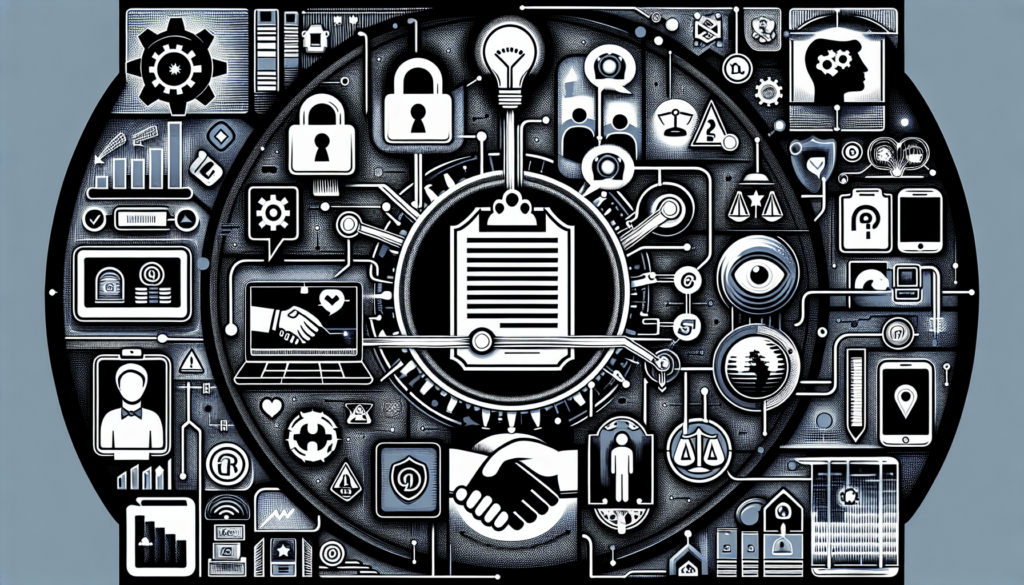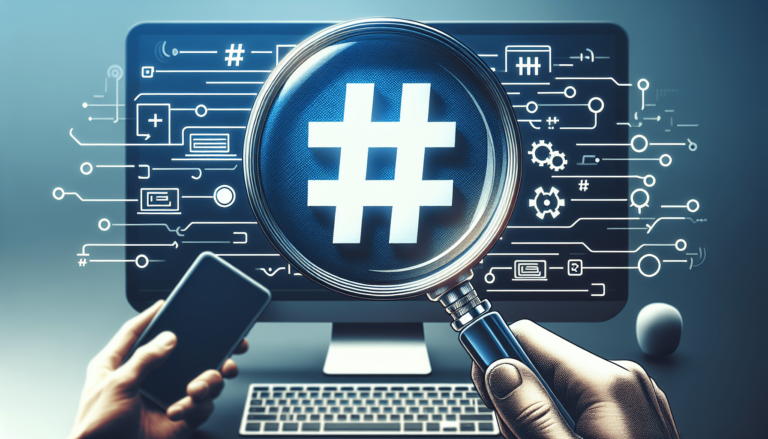What Are The Copyright Issues To Be Aware Of When Using Images On Social Media?
In the vast landscape of social media, where visual content reigns supreme, it is crucial to navigate the copyright minefield with utmost caution. Your journey through the digital realm of images is teeming with potential pitfalls, as unwittingly infringing on someone’s copyright could have serious legal repercussions. This article aims to shed light on the copyright issues that should be on your radar when utilizing images on social media platforms, ensuring that you stay on the right side of the law while sharing your captivating visuals with the world.

Understanding Copyright Laws
What is copyright?
Copyright is a legal right that grants the creator of an original work exclusive rights over its use and distribution. It protects the rights of artists, authors, photographers, and other creators to control how their work is used, reproduced, and shared. This means that others cannot use or exploit the work without the creator’s permission, ensuring that creators are recognized for their work and have the opportunity to profit from it.
How does copyright protect images?
Copyright protects images in the same way it protects other creative works. When an image is created, whether it’s a photograph, artwork, or digital design, it is automatically covered by copyright. This means that the person who took or created the image has the exclusive right to reproduce, distribute, and display the image. Others must obtain permission from the copyright owner to use the image.
Copyright infringement
Copyright infringement occurs when someone uses, copies, distributes, or displays a copyrighted work without the permission of the copyright owner. This includes using copyrighted images without obtaining proper permissions or licenses, and it is a violation of the law. Copyright holders have the right to take legal action against infringers to protect their work and seek compensation for any damages caused.
Importance of Image Copyright on Social Media
The prevalence of image sharing
Social media platforms have become hubs for image sharing, with millions of users posting and sharing photos every day. While this provides a great opportunity for creativity and self-expression, it also raises concerns about image copyright. With photos being shared and shared again, it can be difficult to trace the original copyright owners and ensure that proper permissions are obtained.
The consequences of copyright infringement on social media
Copyright infringement on social media platforms can have serious consequences. The copyright owner can issue takedown notices, requesting the platform to remove the infringing content. In some cases, the platform itself may take action against the user, such as suspending or even deleting their account. Additionally, legal actions can be pursued, leading to potential fines and other penalties. It is essential to understand and respect copyright laws when using images on social media to avoid these consequences.
Types of Copyrighted Images
Original images
Original images are those that have been created by the photographer or artist themselves. These images are fully protected by copyright, and permission must be obtained from the copyright owner to use them. It is essential to respect the rights of the creator and not use original images without proper authorization.
Stock photos
Stock photos are professionally taken images that are licensed for use in various projects. These images are typically distributed through stock photo agencies or websites, and they often require a fee or subscription for use. When using stock photos, it’s crucial to comply with the licensing terms and properly attribute the image to the copyright owner.
Licensed images
Licensed images are images that have been authorized for use by the copyright owner. This can involve purchasing a specific license or entering into an agreement with the copyright holder. When using licensed images, it’s important to understand the terms of the license and ensure compliance with them.
Creative Commons images
Creative Commons is a licensing system that allows creators to grant permissions for others to use their work under specific conditions. There are different types of Creative Commons licenses, some of which require attribution, while others may prohibit commercial use or derivative works. It is important to familiarize yourself with the specific Creative Commons license attached to an image and adhere to the terms specified.
Obtaining Proper Permissions and Licenses
Seeking permission from the copyright holder
When using copyrighted images, seeking permission from the copyright holder is essential. This can involve contacting the creator directly or using platforms or agencies that facilitate permissions for specific images. It is important to obtain written permission that clearly states the terms and conditions of use to avoid any potential disputes or infringements.
Using copyright-free or royalty-free images
Copyright-free or royalty-free images are those that have been released into the public domain or provided with licenses that allow free use. These images can be found on various platforms and websites specifically offering such images. However, it is crucial to ensure that the images are genuinely copyright-free or have the appropriate licenses, as using improperly labeled images can still lead to copyright infringement.
Applying for licenses or entering into agreements
In some cases, you may need to apply for specific licenses or enter into agreements to legally use copyrighted images. This usually applies to commercial use of images or situations where the intended use falls outside the standard fair use guidelines. It is important to research the licensing requirements or consult with legal professionals to ensure compliance with the law.

Fair Use and Image Attribution
Understanding fair use of copyrighted images
Fair use is a legal concept that allows for the limited use of copyrighted material without obtaining permission from the copyright owner. Fair use typically applies to situations where the use is for educational, commentary, criticism, or news reporting purposes. However, the determination of fair use can be complex and subjective, and it’s always best to err on the side of caution or seek legal advice when using copyrighted images under fair use.
Properly attributing images to the copyright owner
Proper attribution is crucial when using copyrighted images, especially when they are used under fair use or Creative Commons licenses. Attribution ensures that the copyright owner is credited for their work and helps others identify and locate the original source of the image. It is important to follow the specific attribution requirements provided by the copyright holder or Creative Commons license when attributing images.
Getting Creative with Image Editing and Transformation
How does image transformation affect copyright?
Image transformation, such as cropping, resizing, or altering colors, can impact copyright. While copyright generally protects the original, unaltered image, significant transformations may create derivative works, which may require additional permissions or licenses. It is important to understand the level of transformation that constitutes a new work and be mindful of copyright implications when editing images.
Understanding derivative works
Derivative works are modifications or adaptations of original copyrighted works. This can include translations, remixes, or significant transformations. Creating derivative works requires the permission of the copyright holder, as it involves using their original work as a basis. When using images for creative purposes, it is crucial to understand the limitations imposed by copyright and seek permission if necessary.

Dealing with Copyright Infringement on Social Media Platforms
Reporting copyright infringement to the platform
Social media platforms usually have mechanisms in place for reporting copyright infringement. If you discover that someone has used your copyrighted image without permission or you come across infringing content, you can report the infringement to the platform. Provide the necessary details, including your copyright ownership, the infringing content, and any relevant supporting evidence. The platform will then review the report and take appropriate action based on their policies.
Understanding the platform’s copyright policies
It is important to familiarize yourself with the copyright policies of the social media platforms you use. Each platform may have specific guidelines and procedures for addressing copyright infringement. Understanding these policies can help you take appropriate action when dealing with infringing content or protect your own copyrighted images.
Taking legal action against infringers
If reporting copyright infringement to the platform does not resolve the issue or if the infringement is severe, legal action may be necessary. Consult with a legal professional knowledgeable in copyright law to determine the best course of action. Legal remedies can range from issuing cease-and-desist letters to filing lawsuits seeking damages for copyright infringement.
Protecting Your Own Images on Social Media
Using watermarks
Watermarks are visible markings or logos that are placed on images to identify the copyright owner. They can deter unauthorized use of the image and provide a means for others to identify and contact the copyright owner for permission. While watermarks do not provide foolproof protection, they can serve as a deterrent and make it more difficult for others to pass off your images as their own.
Disabling right-click functionality
Disabling the right-click functionality on your images can prevent others from easily copying or saving them. Although this method cannot completely prevent unauthorized use, it adds an additional layer of protection and may discourage casual infringers. However, it’s important to note that disabling right-click functionality can also inconvenience legitimate users who may have a need to access the image for permitted purposes.
Monitoring and enforcing copyrights
Regularly monitoring the internet for unauthorized use of your copyrighted images can help identify potential infringements. Reverse image search tools can be used to track where your images are being used online. If you discover unauthorized use, take immediate action by contacting the infringing parties or reporting the infringement to the platform. Being proactive in protecting your copyrights can help deter future infringements and preserve the value of your work.

The Role of User Terms and Conditions
Understanding the terms of service of social media platforms
Social media platforms typically have terms of service that users must agree to when creating an account. These terms outline the rights and responsibilities of users regarding their content, including images. It is essential to read and understand these terms to ensure compliance and to be aware of any potential implications on image copyrights.
Granting licenses to the platform
By uploading images to social media platforms, you often grant them a license to use, distribute, and display your content to the extent necessary for the platform to function. However, this license usually does not transfer ownership or grant exclusive rights to the platform. Understanding the scope of the license granted to the platform can help protect your rights and prevent unintended uses of your images.
Potential implications on image copyrights
Social media platforms have immense reach and can facilitate the wide distribution and sharing of images. While these platforms can help showcase your work to a larger audience, they can also expose your images to potential infringement. Understanding the potential implications on image copyrights when using social media platforms can help you navigate the complexities and protect your rights.
Navigating International Copyright Laws
Understanding variations in international copyright laws
Copyright laws can vary significantly from one country to another. Different countries may have different durations of copyright protection, conditions for fair use, and requirements for obtaining permissions or licenses. If you intend to use or share images internationally, it is crucial to familiarize yourself with the copyright laws of the specific countries involved.
Respecting copyright laws of different countries
When sharing images on social media platforms that have a global audience, it is important to respect the copyright laws of different countries. Just because an image may be legal to use in one country does not mean it can be freely used in another. Be mindful of international copyright laws to avoid unintentional infringement and potential legal consequences.
Seeking legal advice for cross-border issues
Navigating international copyright laws can be complex, particularly when dealing with cross-border issues. Seek legal advice from professionals with expertise in international copyright law to ensure compliance when using or sharing images across different countries. They can provide guidance on obtaining permissions, licensing, and understanding the intricacies of copyright law in specific jurisdictions.
In conclusion, understanding and respecting copyright laws are crucial when using images on social media. By recognizing the rights of copyright owners, obtaining proper permissions and licenses, attributing images correctly, and taking proactive measures to protect your own images, you can navigate the complexities of copyright and contribute to a fair and respectful environment for creators and users on social media platforms. Remember, the creative content you share should always be done in a way that respects the rights and interests of others.






